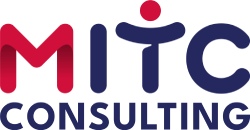When you want to open a business in Switzerland, the question of which Swiss legal form to choose is an obligatory step… and one that could discourage many people.
Each type of Swiss company has its own characteristics.
In this article, we will not simply describe the specific features of each Swiss legal form.
We will also advise you on the right legal status for your type of business.
Going solo: the choice is yours
If you want to set up your own business in Switzerland, in Geneva for example, but remain alone in your activities, you have two options:
Sole proprietorship (raison individuelle)
If you are prepared to take on the economic risk of your small or medium-sized business, the obvious legal form for setting up your own business is the Swiss sole proprietorship.
To obtain this status, you need to have already started your business and the cost of setting it up is between CHF 0-1200, depending on whether you seek advice on how to set it up and whether you need to register your sole proprietorship in the trade register.
From CHF 100,000 upwards, you will need to be entered in the trade register, as well as in a compensation fund.
The company has no personality of its own and merges with the entrepreneur. In the event of debts, the entrepreneur’s personal assets will be liable.
Wage portage (portage salarial)
There is, however, an even simpler and, above all, more secure alternative to becoming self-employed in Switzerland: wage portage.
While you remain completely independent in all the decisions you make, you enjoy the security of an employment contract and all its advantages (contributions, pay slip, etc.).
It also offers the great convenience of allowing you to leave all the administrative procedures, including accounting, to the wage portage company of your choice.
It’s also a good option if you want to launch a self-employed ancillary activity, to simplify your contributions, for example.
However, wage portage does not allow you to hire an employee if the need arises.
In a previous article, we explained in more detail the differences between sole proprietorship in Switzerland and wage portage.
The easy way to form a partnership: the General Partnership
If there are several of you wanting to form a partnership to set up a business in Switzerland, the general partnership offers the advantage of being fairly simple to set up and requiring no minimum capital.
You just need to be 2 individuals, and to agree on all the divisions: roles, profits, etc.
The partners, considered as self-employed, are then personally AND jointly and severally liable for the company’s economic risks.
Good relations between the partners are therefore essential when setting up a business as a general partnership!
The cost of registering under this status is CHF 1,500-4,000.
For companies with large amounts of capital: the Swiss Joint Stock (SA/AG) (Société Anonyme)
As its french name suggests, this type of company makes it possible to set up a business in Switzerland and for its various partners and investors to remain anonymous.
The SA/AG (public limited company) is ideal for large amounts of capital, and can be set up with a minimum of CHF 100,000.
Here, the legal entity of the company is separate from that of the entrepreneur, who can therefore set up the company alone.
If there are several partners in the company, the minimum share for a partner is CHF 0.01.
The cost of this option for setting up company as a swiss joint stock in Switzerland is CHF 3,500-7,000, and 20% of the share capital must be paid up on formation (minimum CHF 50,000).
A middle ground for small and medium-sized businesses: the Swiss Limited Liability Company (Société à Responsabilité Limitée – Sàrl/GmbH)
The Swiss LLC, or limited liability company, allows each partner to assume liability up to the amount of their contribution.
The advantages offered by this status are similar to those of the SA/AG, but the major difference is that for a LLC, the minimum capital is reduced to CHF 20,000.
Setting up a limited liability company is therefore a more accessible option than a SA/AG if you have limited capital. What’s more, a Swiss LLC can easily be converted into a SA/AG if your capital allows.
In addition, each partner must own a minimum share of CHF 100.
Setting up an LLC in Switzerland costs between CHF 1,750 and CHF 4,500.
Finally, as you will have realised, each type of business has its own ideal solution for setting up a company in Switzerland. You’ve got everything you need to make the right choice!




